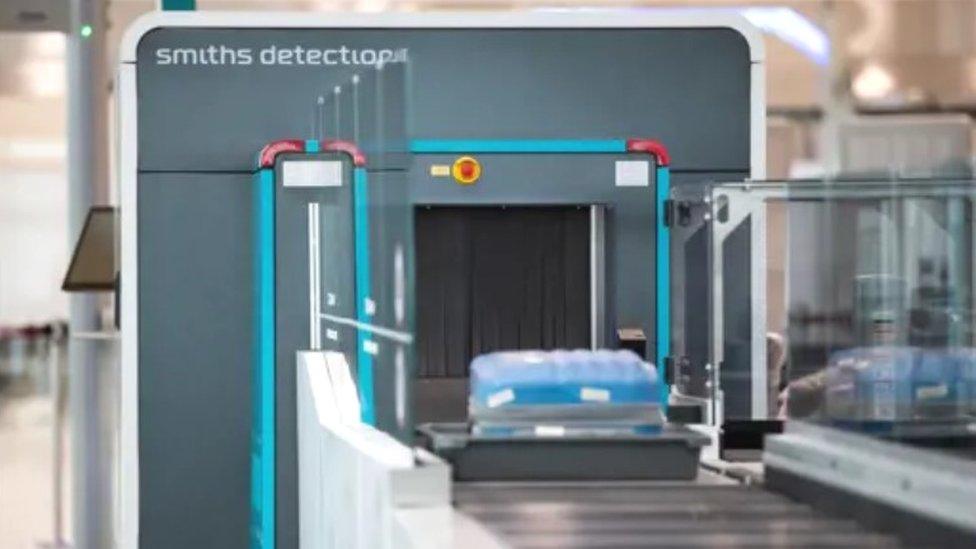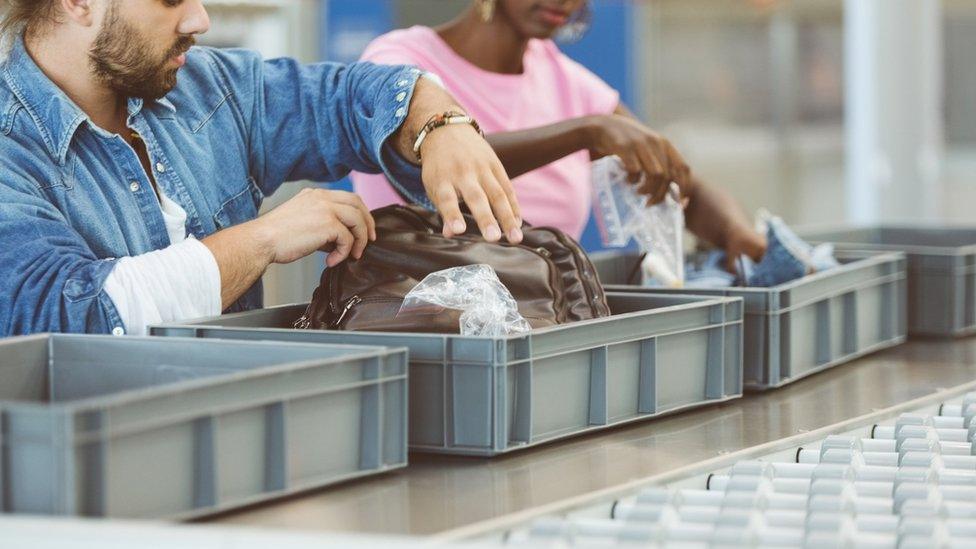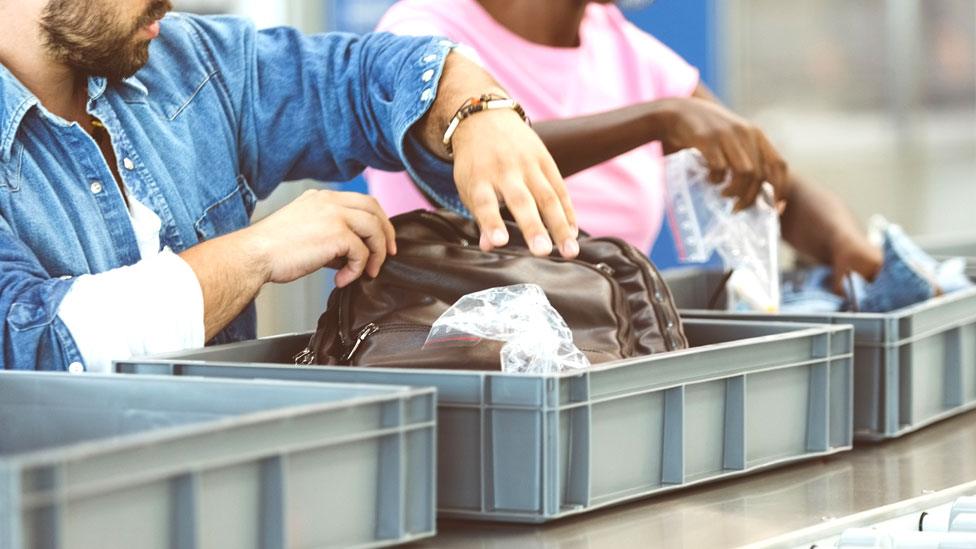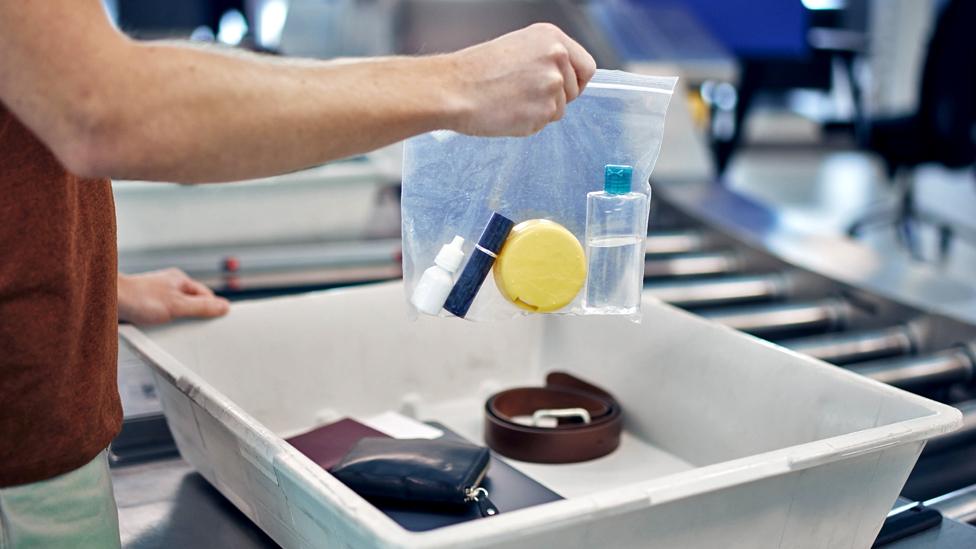Edinburgh Airport orders 3D scanners that will end liquids rule
- Published

The new scanners are due to be phased in at Edinburgh Airport next year
Edinburgh Airport has ordered new high-tech scanners that will bring an end to some security rules over hand luggage next year.
The move comes ahead of a government deadline of June 2024 for most UK airports to install 3D scanners.
It means passengers will not have to remove liquids and electronic devices from hand luggage for security checks.
Eight scanners made by Smiths Detection are expected to be phased in at Edinburgh during the course of 2024.
The equipment produces 3D X-ray images and is similar to CT scanners used in hospitals.
It enables staff to zoom in on a bag's contents and rotate the images for inspection.
Passengers at most airports are currently required to remove items such as tablets, laptops and liquids from their hand luggage for screening at security checks.
Liquids, such as sun cream, shampoo or toothpaste, need to be 100ml or under and must be in a clear plastic bag.

Smiths Detection said the scanners would mean passengers could take up to two litres of liquid on to a plane.
In April, London City Airport scrapped the 100ml liquid limit after installing CT scanners.
It became the second UK airport to use the technology in all its security lanes, after Teesside introduced it in March.
'Safety paramount'
Edinburgh Airport chief operating officer Adam Wilson said: "Safety is always paramount and by moving forward with these innovative and next generation scanners, we will maintain those high security standards while helping passengers move through the airport quicker."
AGS Airports, which operates Glasgow, Aberdeen and Southampton airports, declined to say whether it had placed any orders for scanners but said it was "in line to meet the government's deadline".
The technology has already been in use by US airports, such as Atlanta's Hartsfield-Jackson and Chicago's O'Hare, for a number of years.
- Published4 April 2023

- Published24 November 2022
